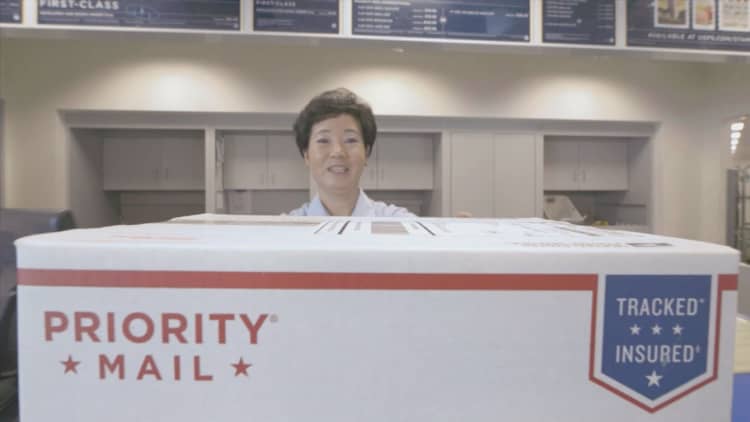
The Democratic platform laid out some of the party's main talking points for the general election, but also included one that may seem unusual, even bizarre, to some.
The 55-page platform said that a Hillary Clinton administration would work to let the U.S. Postal Service offer "basic financial services," including cashing checks and giving USPS more flexibility in choosing with services it provides, in an effort to revitalize the government service.
Harry Holzer, a professor of public policy at Georgetown University, said the reasoning behind this may be "it's the one institution that kind of exists everywhere already."
He added, however, the government would have to spend money to make this work.
In the first calendar quarter of the year, USPS reported a net loss of $2.04 billion, a 38 percent increase from the year-earlier period. As of Jan. 13, the service employed a total of 625,113 people.
"You'd have to fund it. Right now, with their current budget, they can't take on an unfunded mandate," Holzer said. It's "an intriguing idea, but it would cost some money."
Granting USPS the ability to execute basic financial services, however, is not a new idea.
USPS used to take deposits from clients until 1966 and, in 1947, had nearly $3.4 billion in deposits. USPS became a popular deposit home for people who didn't have confidence in banks in the early 20th century.
"The United States Postal Service (USPS) is a national treasure. That is why Democrats embrace a vibrant, public Postal Service that offers universal service, and reject any effort to privatize or marginalize it," the Democratic platform, released July 21, said.
Earlier this year, the House introduced a bill that, if made into law, would grant USPS similar powers. In fact, the bill goes a step further and would give USPS with the ability to provide "small-dollar loans" and "services relating to international money transfers."
The Democratic platform also talked about enacting a "modernized" version of the Glass-Steagall Act. The original version, signed into law in 1933 and repealed in 1999, basically created a wall between commercial and investment banking.
"Banks should not be able to gamble with taxpayers' deposits or pose an undue risk to Main Street. Democrats support a variety of ways to stop this from happening, including an updated and modernized version of Glass-Steagall as well as breaking up too-big-to-fail financial institutions that pose a systemic risk to the stability of our economy," the Democratic platform said, but did not provide details about how it would differ from the original law.
CNBC reached out to the Clinton campaign, but did not receive an immediate response.
"No one really thinks that Glass-Steagall … would've prevented the crisis of 2008. As long as the commercial banks were free to buy those securities, securities that had the [risky mortgages], it didn't matter that they were interconnected with the investment banks," Georgetown's Holzer said.
He also said that breaking up big financial institutions, another idea presented in the platform, may not have helped in preventing the crisis.
"The biggest problem with the banks in 2008 was not their size, but their interconnectedness. AIG was actually quite small; Bear Stearns was quite small. Just breaking big banks into small ones, if they engage in the same risky behavior, it doesn't necessarily solve your problem."


